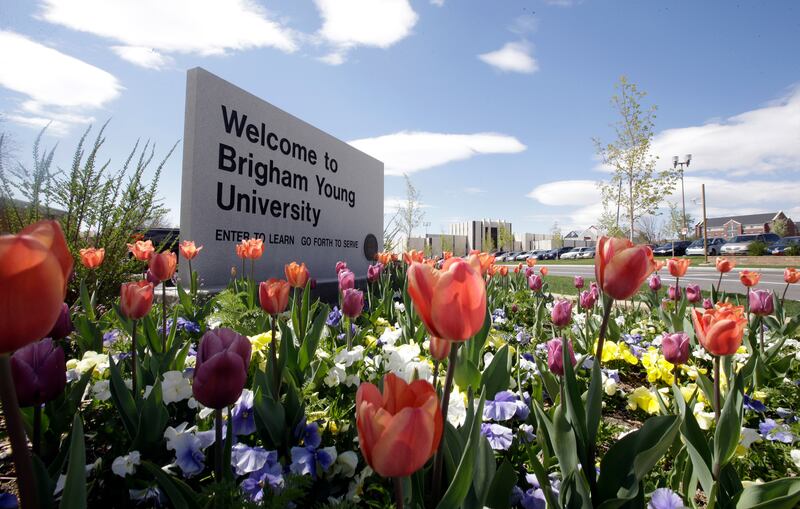Last week, two distinguished scientific societies pulled BYU job postings from their websites.
The reason?
The American Geophysical Union put out a public statement reading in part: “AGU has always encouraged and fostered a diverse geoscience community throughout its history because we believe — and repeatedly see — that diversity and inclusion are essential to advancing science. … Since the job posting from BYU referenced its Honor Code as a requirement of employment, which conflicts with our policy, we removed the job posting from our website.”
The irony of invoking diversity and inclusion as a rationale for, well, excluding a religious minority school was evidently lost on the assemblage of scientists.
The deeper issue, of course, is that some within the realm of higher education believe that regulating sexual behavior above and beyond mere consent is retrograde. And, more specifically, regulating homosexual behavior, as BYU’s honor code does, is an offensive affront to the core identity of LGBTQ individuals.
The thinking goes something like this: LGBTQ students or faculty may desire amorous relationships as an extension of their strongly held LGBTQ identities; because these desires extend from a core identity, societal institutions should not unduly bridle them, except in situations of nonconsent.
Even if I don’t agree with those who protest BYU, I acknowledge that their position is earnestly felt and sincerely held. And there’s no question that we all need to do better in creating an environment in which LGBTQ individuals are loved and integrated within families, faith communities and universities.
LGBTQ individuals also lack federal nondiscrimination protections. The Church of Jesus Christ of Latter-day Saints and Brigham Young University have supported a “Fairness for All” coalition of religious and LGBTQ leaders seeking to expand federal nondiscrimination protections to the LGBTQ community while also balancing precious First Amendment rights.
Few are aware, however, that Brigham Young University has also become a robust participant in Common Ground, an NCAA initiative fostering exchanges between athletes from faith-based and the LGBTQ communities.
(Of course, it’s important to acknowledge here that the LGBTQ and faith-based communities are by no means separate; there are many who identify strongly with both.)
Much of the aforementioned engagement is reflected in recent data showing that Utah ranks second in the nation in terms of support for LGBTQ nondiscrimination protections.
In the end, the line of reasoning advanced by advocates who protest BYU is not altogether dissimilar from the rationale defending BYU’s Honor Code policies.
Members of The Church of Jesus Christ of Latter-day Saints desire to maintain an educational atmosphere of strict sexual norms as prescribed in Latter-day Saint teachings and scripture; because these desires extend from a firmly-held, core religious identity, they should not be unduly bridled by society or other cultural institutions, except in situations of nonconsent.
Some will understandably push back at this idea and say any comparison in reasoning is a false equivalency.
People choose religious identities and beliefs, some might contend, so they have a responsibility to simply change their religious identities or beliefs when they offend others.
But, is identity really that simple?
As a recent Harvard and MIT study has pointed out, it’s not that simple for LGBTQ individuals. So why would it be for the religious?
Certainly, on the one hand, people do in fact convert to new faith traditions all the time. Yet, on the other hand, history suggests matters of conscience — our most foundational convictions — remain central to our personhood and identity.
The acclaimed play, “A Man for All Seasons,” written by Robert Bolt, depicts the story of Sir Thomas More, the English lawyer and statesman executed by King Henry VIII.
Based on his religious beliefs, More refused to accept both the legitimacy of the king’s divorce from his first wife Catherine of Aragon and the king’s claim to be the ecclesiastical head of the Church of England.
Despite immense social pressure to take an oath acknowledging the king as the church’s “Supreme Head,” More simply would not trade his conscience for social comfort or personal security.
At his eventual execution for treason, he reportedly declared: “I die the King’s good servant, and God’s first.”
Reason and experience suggest religious convictions are not, even in the face of the gallows, a trifle to those who hold them.
It’s hopefully clear that both LGBTQ advocates and Latter-day Saints are acting in accordance with the dictates of their conscience — I pray, for the sake of our nation and for the sake of liberty, that despite ideological differences, each side can always agree to safeguard this most fundamental of human rights.
Hal Boyd is an associate professor of family law and policy in Brigham Young University’s School of Family Life and a fellow of the Wheatley Institution. His views are his own.

